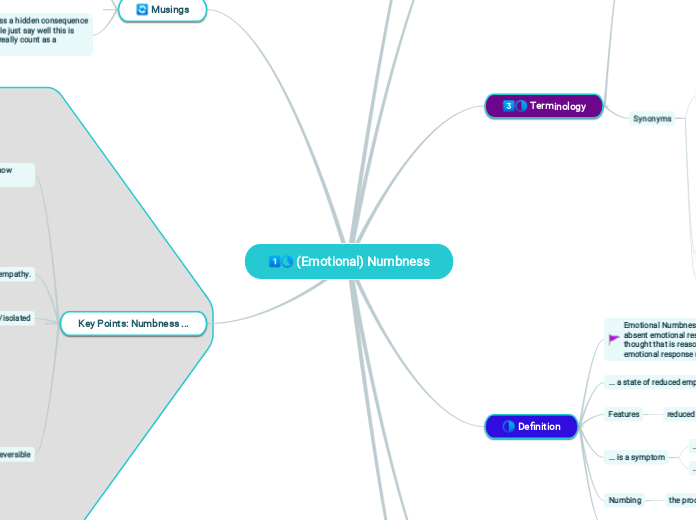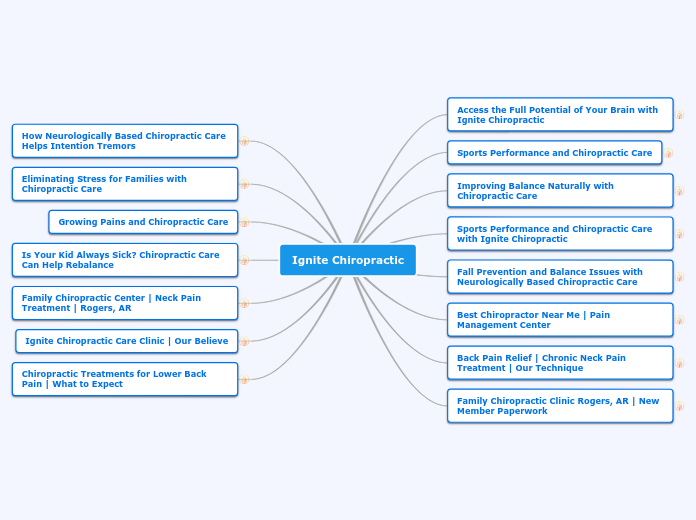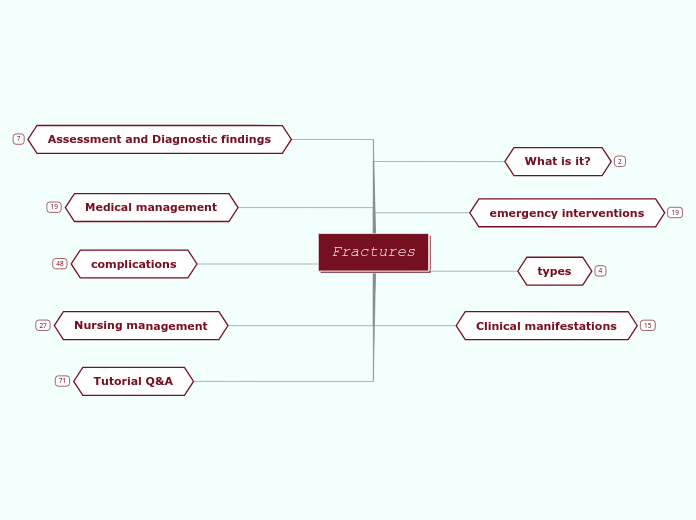(Emotional) Numbness
Key Points: Numbness ...
... is reversible
Always a result of stabilization and processing
EC has the potential to reverse numbing
if it was acquired
usually, takes a lot of effort and time
more difficult to reverse the earlier in life it was acquired
partially or completely
in most cases
provided an effective approach
... can be general or specific/isolated
like having "blind spots" on your empathy-map
a person can be numb towards one or more specific situations or emotions
... is inversely/negatively correlated with empathy.
Empathy
... has the most fundamental impact on how individuals experience their lives.
I believe it is often not given the importance it deserves.
It impacts ...
...
... maturing and personal development
... all our relationships
It shapes our sense of meaning - which is, in the end, our essence.
Meaning
Life is what you feel.
... and when you are numb, you feel less.
Musings
I call emotional numbness a hidden consequence of trauma because people just say well this is who I am now it doesn't really count as a symptom
- the moment something died inside of you - a part of yourself died
Pain and numbness both make me suspicious. Numb is the scar resulting from pain. Not as functional. - not morals as a guide
when individuals are numbing, they are always experiencing something that causes pain in their emotional structure
if many individuals are affected, this can be attributed to a fundamental conflict of that causal experience with "human nature"
need to separate Human Nature from Emotional Structure here
Neurophysiological mechanisms
Behavioral mechanisms
Avoidance
Research
Alexithymia / Causes
Hypotheses:
cognitive-behavioral mechanisms:
not minding the pain, repetitively, systematically
i.e. not giving it importance/meaning
thereby decreasing attention towards it
dissociation
frequent!
Causes
inherited
structural features of the brain cause numbness (e.g. in sociopaths)
... a phenomenon similar
acquired
Examples
Jacob Blake paralysed by shooting, his father says: "I'm not sorry. I'm angry. And I'm tired. I haven't cried one time. I stopped crying years ago. I am numb. ..."
Posttraumatic emotional numbness in a child - Example from "The Colony" Scene Netflix Series
Debunking common myths about emotions
usually as a result of ...
(psychological) Trauma
as a result of a natural defense mechanism
Something has been too painful - that leads to shunning of that emotion
most frequent
Definition
2 kinds of emotional numbing/numbness
Numbing
the process to become (emotionally) numb
... is a symptom
... not a personality trait
... not a condition
Features
reduced Empathy!
this is why I prefer "numbness" over Alexithymia
... a state of reduced empathy.
/ ... loss of empathy [see. Causes]
Emotional Numbness is a state of reduced or absent emotional response to a stimulus or thought that is reasonably likely to trigger an emotional response (in most people).
There are situations where defense mechanisms
wip
I am comparing here in this definition to "most people", which is somewhat ambiguous.
Terminology
Synonyms
Impassiveness
being impassive
Emotionlessness
being emotionless
Alexithymia
People with the condition:
"alexithymiac"
"alexithymic"
Associated with / A feature of certain pathologies, like:
Eating disorders
... others
Bulimia
Anorexia nervosa
As medical term
“… the conclusion is reached that patients with these characteristics may not be good candidates for dynamic psychotherapy.” (Sifneos 1973)
I think this is a tragic conclusion. Those patients need it the most - but of course you have to start slowly. The stabilization phase might be long and a bit tedious for the therapist - but it is worth it.
Emotional Stabilization / Challenges
“… relative constriction in emotional functioning, poverty of fantasy life, and inability to find appropriate words to describe their emotions.” (Sifneos 1973)
Sifneos, P. E. (1973): The prevalence of 'alexithymic' characteristics in psychosomatic patients. In Psychotherapy and psychosomatics 22 (2), pp. 255–262. DOI: 10.1159/000286529.
Good source for etymology and first use in literature
Wikipedia
For simplicity I use "numbness" for emotional numbness in many places.









